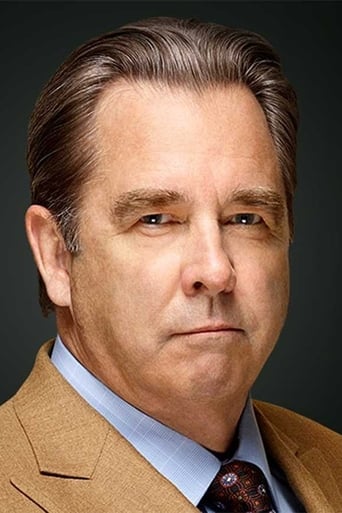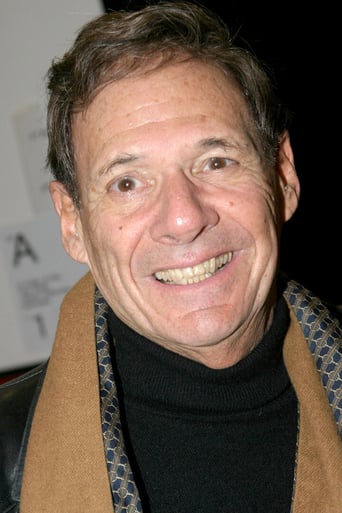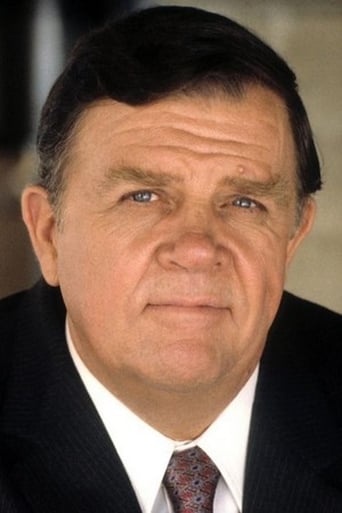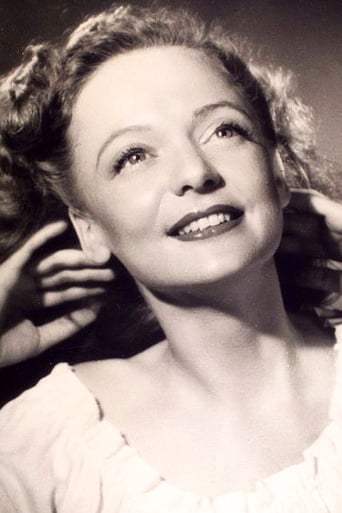Titreenp
SERIOUSLY. This is what the crap Hollywood still puts out?
Softwing
Most undeservingly overhyped movie of all time??
Claysaba
Excellent, Without a doubt!!
Kien Navarro
Exactly the movie you think it is, but not the movie you want it to be.
dougdoepke
That booming factory floor projects all the deafening sounds of a WWI artillery barrage. Why all the workers aren't deaf amounts to a puzzler. Gutsy movie. I like the main theme. The drive to unionize not only benefits the community but brings out Norma Rae's otherwise hidden potential, not only as a person but as a leader. Revealingly, it's the Jewish outsider and organizer who triggers that potential. Otherwise, the 31-year old is caught up in drifting aimlessly through life, a human cog in the mill's inhuman machinery. Men hit on her producing three illegitimate kids, while she lives at home with her parents. But what the heck, she's just blending in with the prevailing company town. Of course, all that alters once she stops being a passive vessel and begins to think about why things have to be the way they are. I'm really surprised the screenplay makes the "trouble-making" organizer a New York Jew since that directs attention onto certain stereotypes. Still, it's a gutsy move and provides good banter as Norma Rae's southern rural seeks commonality with Reuben's eastern urban. I also like the way the screenplay refuses to vilify the company officers. That would be too easy and cheap. After all, they're cogs too, only at a higher and better-paid level. Actually, the movie and its themes remind me of the classic labor movie Salt of the Earth (1953). Unfortunately, that McCarthy-era film was withheld for years because of its supposed subversive content. Nonetheless, the theme of the individual growing through labor betterment is quite similar to Norma Rae's. And if anyone can find material that goes beyond reformist liberalism in either film, I'd like to see it.Anyway, Field proves she's a lot more than a singing nun or a frolicking beach bunny. I'm glad they cast someone petite like her and refused any hint of glamor. Seeing her small, plain frame stand up to the hulking men shows the power of personal conviction, whether male or female. All in all, the movie's a fine effort at showing the historical dynamic behind a laboring class pushing upwards to the proverbial middle. And if, as a result, manufacture looks for replacement through offshoring or mechanizing, then deeper questions than the worthy Norma Rae need raising.
ElMaruecan82
Norma Rae lives in a small Southern town in her parents' home with two kids from different fathers. She's a good Christian (with "a lapse or two" as would say the priest) who goes regularly to the church and sings in the choir. Like her parents, like most of the townspeople, she works on the cotton mill, and she wouldn't be surprised if her children followed the same path. As the song says "it goes like it goes" and this is how things go for Norma Rae.Martin Ritt directs every scene in the kind of documentary-like minimalism that was slowly fading from the screens in the late 70's, the New Hollywood parenthesis was soon to be closed for more commercial movies, and those like "Norma Rae" represented a last breath of freshness before the age of prefabricated entertainment. The realism of "Norma Rae" is constant, following a straight-to-the-point screenplay. As a result, it never loses its track by creating some glimpses of romances or sentimentality, as if it deliberately embodied the common attitude of the factory workers, real no-nonsense people who talk like they think and try not to think too much. The film opens with pictures of a little girl; we recognize the eyes and smile of Sally Field. The point is to show that this little girl could have been any little girl, except that her background immediately conditioned her life. That's why she accepts it, and that's why most people accept it. It's not fatality but a form of wisdom, of acceptation that life is mostly made of struggle and effort, and that some places in the country are so modest the sun-rays of the American Dream can't touch them. The town epitomizes the darkest aspects of capitalism: less the minimum wages, the layoffs or the hellish conditions of work than the workers' submission to a modern form of slavery, and their reluctance to form a union.The situation is unbelievable and intolerable, for us. But that's the crisis-stricken America of the 70's and people were no different from their elders of the Great Depression. And as I mentioned before, people didn't think too much, it obviously took some knowledge to speak about people's rights, and when education was lacking, silence was still a better option. "Norma Rae" chronicles the evolution of a woman who was no more or no less brave, intelligent or capable than her co-workers,but she was the first to follow an intruding union organizer from New York Ron Leibman as Reuben Warshowsky, because at least, she was the first to have faith in his fight.And this faith doesn't come from nowhere. The film starts with Norma Rae's mother (Barbara Baxley) temporarily losing her audition because of all the machinery's noises, later, it's made clear that her father (Pat Hingle) has a heart condition. Norma Rae paid too much a price for the factory and Reuben's arrival coincided with a time where she couldn't take it anymore, before the power, she had the anger and that was enough. As for Reuben, he crystallizes everything Norma Rae is not, he's from the city, educated, street-smart, politically engaged, and even his Jewish background accentuates his status as a 'foreigner' and awakens a latent form of Anti-Semitism. But Norma Rae is fascinated by these differences because anything different from her world can't be that bad. A total metamorphosis would have damaged the film's credibility, but Norma Rae changes without ever changing. It's impossible to review the film without applauding Sally Fields' performance that swept off all the main acting awards that year. With her nasal voice, short temper, and frail silhouette that contrast with the goons surrounding her, Norma Rae is the perfect incarnation of the 'little people', there's a fire burning inside her, but she's constantly underestimated and patronized. And with the help of Reuben, she'll learn how to raise her voice enough to be heard. The film tactfully avoids some clichés like having a romance, or turning her new husband, played by Beau Bridges, into a jealous and bitter man, it keeps focused on Norma Rae, her personal evolution and America's average working conditions in factories.The evolution reaches a pinnacle during the film's most iconic moment, that elevated Norma Rae to one of American Cinema's greatest heroines. Forced to leave the factory, as a last resort, she writes UNION in a piece of cardboard and turns it to every worker. One by one, they stop their machine. At the end, the factory is silent but this time, it's an eloquent silence that exudes what has been restrained during so many years. It's a silence that resonates as the loud sound of solidarity. After the incident, Norma is put in jail, and finally breakdowns in Reuben's car, in what I thought, was the most powerful moment of the film, because true to life. Because that's how a real woman would have felt, no matter what Reuben had to endure, she was still the daughter of these American little towns where people have two names.The following scene might be too sentimental but it's crucial because it illustrates the deep changes in Norma Rae's personality, she tells her children about her past, her present so that they wouldn't learn it from strangers. They listen, nod, and go to sleep, then she's joined by her husband and become again the loving housewife she is. Everything will be different from there, but her conscience is clear and she knows no one would ever judge her, because at least, she stood up for her beliefs.And if "Norma Rae" is about anything, it's precisely the courage to stand up against injustice, even when we're alone, or especially when we're alone, because an injustice is only the sum of individual ones, and if they can't raise their voice, one must show the example. It goes like it goes but this is the only way it goes to victory ...
mike-world1
Hard to understand, why on IMDb the movie only has a rating of 7, it deserves much better than this. Wonderful sets, cast, cinematography and plot. Everything beyond perfection! It's a touching story and the movie portrays it well. I have always liked stories that are about justice, while old black and white movies lived up to the expectation, this is relatively newer one and it didn't disappoint. The length is just ideal, it finishes at the right point though leaves much curiosity and longing that it should have lasted more. Great movies are about this. Dialogues are inspiring and background music is impactful. The movie also has one of my favourite songs! Couldn't have asked for more...
nomorefog
For members of the audience who remember Sally Field from her performances in Mrs Doubtfire and Forest Gump, this film should come as a surprise. As the star of 'Gidget', playing a Californian surfer girl who had never heard of Charles Manson or Sharon Tate, Field was indelibly sweet and her persona seemed oblivious to the upheavals that the United States were undergoing in the late sixties. Field found herself in another television series called 'The Flying Nun', which was largely held in derision, even if it won the ratings. Let's just say that Sally Field was someone who put in a great deal of effort to sustain her credibility in the most arduous of circumstances. She was Burt Reynold's girlfriend for a time (although we shouldn't hold that against her,) and then won the part of Norma Rae; she promptly and surprisingly won an Oscar as Best Actress in a leading role for her troubles since no one had ever suspected that she could actually act. Her Oscar was a triumph, and nobody could begrudge her for it. Now, for the movie! Set in an industrial town in the South, where the only employment available is in a large woollen mills, Field plays a young woman with two children on the road to nowhere, working beside her mother in the mills after her father's retirement. Her mother is becoming deaf from a lifetime of drudgery and Field has a proposal from a man with his own children that she decides to accept because she simply has no other choice than to take him up on his offer. The mills have a bad name for not allowing its workers to join a union, and trouble arrives in the person of a dedicated union man from the North (played by Ron Liebmann) determined to take the issue up with management and have union benefits in place for the workers. Needless to say, the management is not vaguely interested; he befriends Norma Rae at a motel with one of her dates and she gradually becomes a committed union activist and an outspoken critic of the poor working conditions her and fellow workers are expected to endure.Directed by Martin Ritt with a distinctive Southern flavour and an eye for character and local detail, this is a pretty good film with an excellent leading performance from Field who I think deserved her Oscar. Her character starts off as none too bright, but she wins the audience over with the slow recognition that her life and the lives of others around her could, and deserve to be, much better. Ron Liebmann and Beau Bridges who plays Norma's husband provide good support and Field displays a wonderfully tough side to her character that audiences had not previously been aware of. She is cute, but also has spine, which is a very appealing combination.The movie doesn't patronise its audience; the subject of trade unionism is not often brought up in Hollywood movies, much less an entire movie being devoted to it. Finally trapped by the management and forced to serve a (short) time in jail, and almost losing her husband in the process, Norma Rae sticks to her guns and the film ends on an upbeat note as the union is voted into existence by the Norma's fellow workers. Liebmann returns to New York, providing closure to one of those rare relationships between a man and a woman in a Hollywood movie that is mostly one of friendship and regard.'Norma Rae' is one of those films with its heart in the right place, and it also delivers as entertainment with a leaning towards the left-liberal wing of politics. It works as an effective antithesis to the claptrap disguised as entertainment that promotes violence and militarism and is financed by Hollywood, meant to promote an agenda supporting blind adherence to authority and politically reactionary issues.







